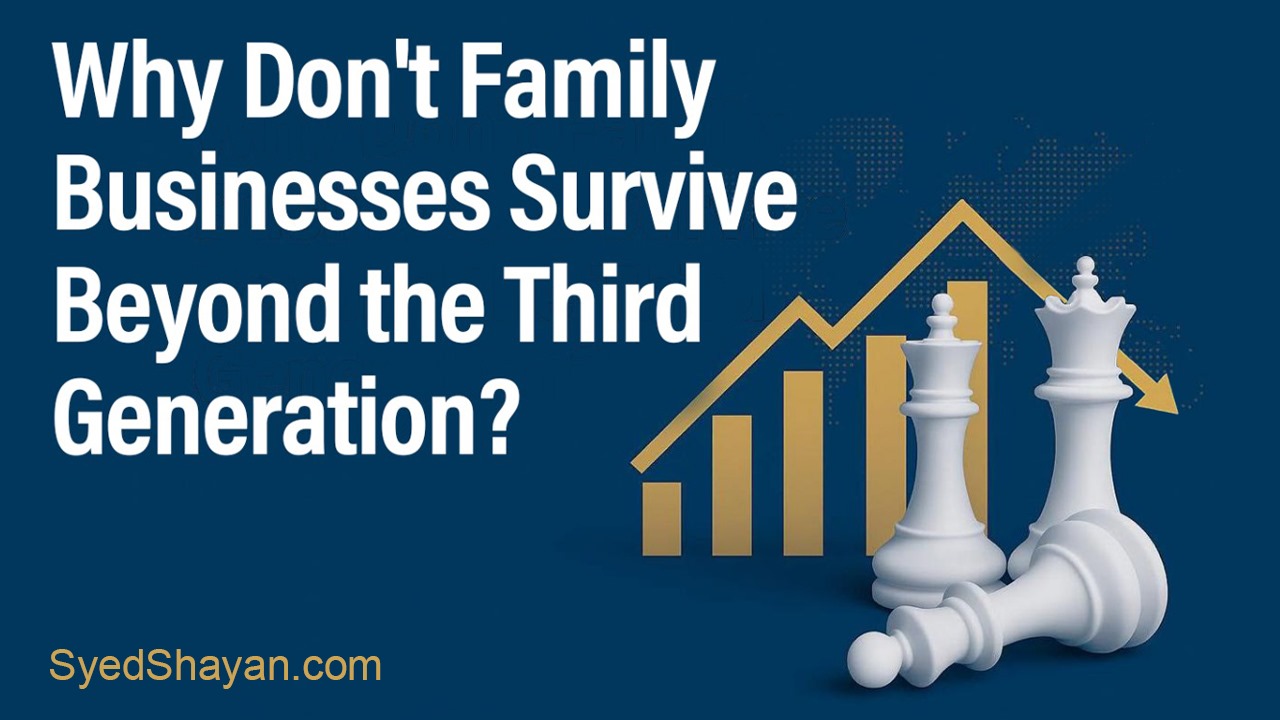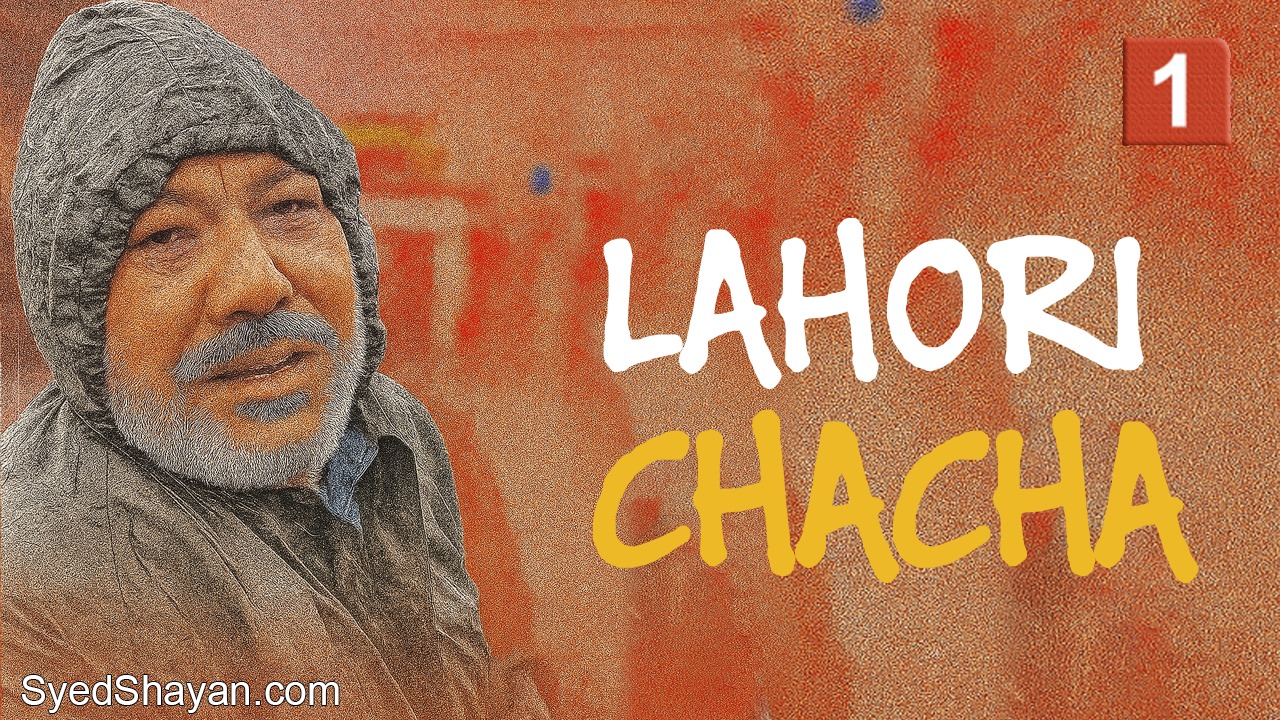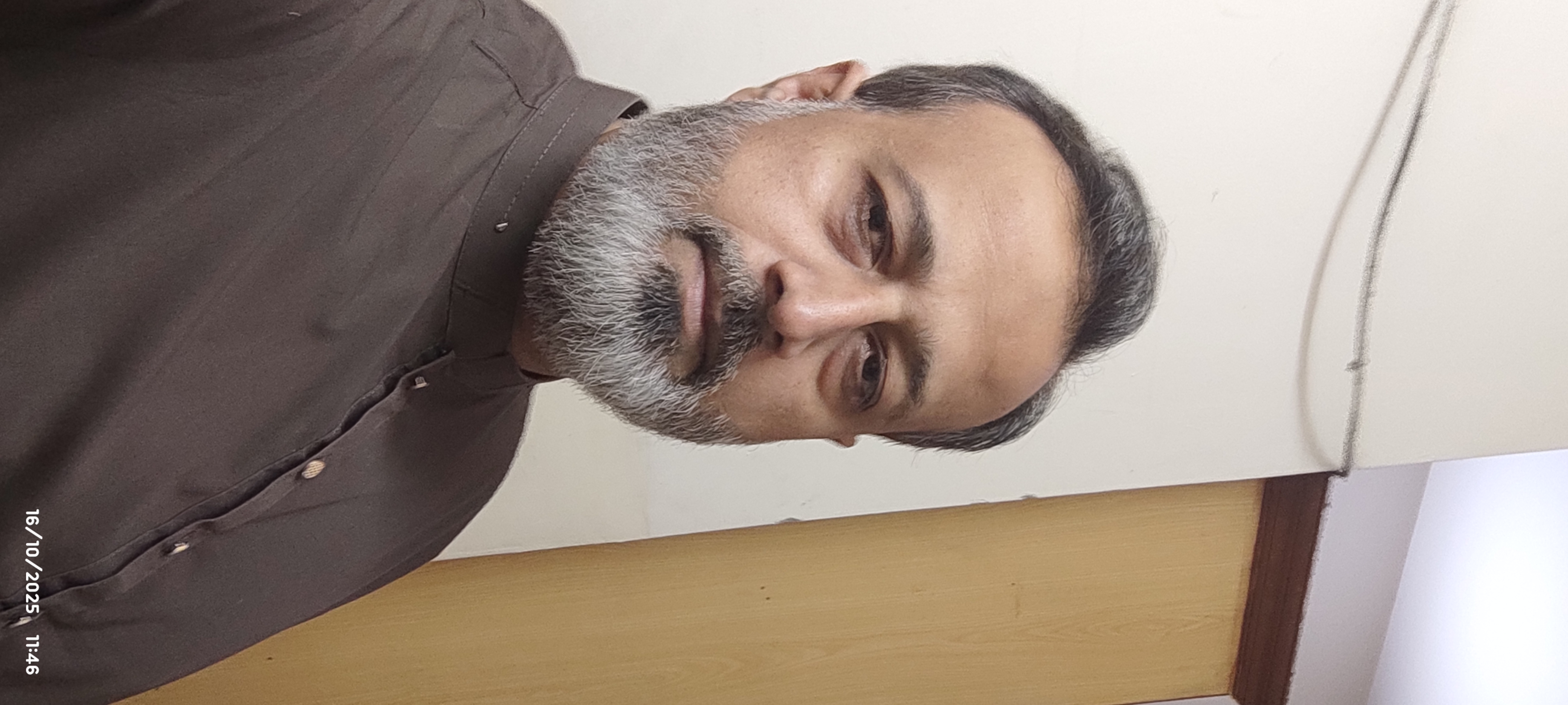By: Syed Shayan

English Version Stats: 10 hr 34 min total reading time by 37 readers
[Urdu version metrics tracked separately]
Why Family Businesses in Pakistan Rarely Survive the Third Generation
In Pakistan, family businesses often collapse by the third generation, a phenomenon known as the Three Generation Rule. Research from PwC’s Family Business Survey, the Family Firm Institute, and Harvard Business School reveals a stark reality: 70 percent of family enterprises fail within the first generation, only 30 percent reach the second, and a mere 12 percent endure to the third. By the fourth generation, just 3 to 5 percent survive. This global pattern raises a critical question: Why do so many Pakistani family run firms fail to outlast their founders’ grandchildren?
This cycle resonates across cultures. In the West, the adage “shirtsleeves to shirtsleeves in three generations” captures it: the first generation builds wealth through grit, the second sustains or grows it, and the third squanders it, returning the family to its roots. In Japan, home to businesses spanning dozens of generations, a similar saying echoes: “rice paddies to rice paddies in three generations.” In China, Confucian wisdom warns, “Wealth does not last beyond three generations,” emphasizing that unearned riches, without discipline or values, breed irresponsibility. These proverbs, though varied, reflect a universal truth mirrored in Pakistan’s bustling markets and family legacies.
Seven key factors explain why these enterprises struggle to endure:
1. Fading Passion Among Heirs
Family businesses are born from a founder’s vision and tireless effort, proudly displayed on shop signs proclaiming Dada Pota (Grandfather and Grandson) across Pakistan’s bazaars. Yet, subsequent generations may lack that spark. Educated abroad or exposed to global lifestyles, younger heirs often prioritize personal ambitions over the family legacy. Shaped by Western individualism or drawn to modern careers, they see the business as a burden rather than a calling, weakening its foundation.
2. Evolving Market Realities
A business model that thrived in the founder’s era may falter in the world their grandchildren inherit. Over a century, spanning three generations, markets, technologies, and consumer preferences transform. A textile business built on wholesale trade in Karachi’s crowded markets once flourished, but today’s digital age, driven by e-commerce and fast fashion, demands reinvention. Failure to embrace online platforms or data driven strategies risks rendering a once thriving firm obsolete.
3. Leadership Vacuum
Strong leadership is the lifeblood of any enduring business, yet Pakistani founders often fail to groom successors. Charismatic and hands on, they centralize decisions, leaving little room for institutional frameworks or succession planning. When they pass, a void emerges. Not every heir has the vision or skill to lead, and rivalries among siblings or cousins, common in Pakistan’s tightly knit families, turn strategic choices into personal battles, eroding trust among employees and clients.
4. Resistance to Modernization
Success today demands agility, adopting automation, digital tools, and innovative strategies. Yet, many Pakistani family businesses cling to outdated methods, from manual ledgers to aging machinery. This reluctance cedes competitive ground and alienates younger heirs attuned to global trends. A business stuck in the past, whether in Lahore’s industrial hubs or Peshawar’s markets, risks irrelevance in a world racing toward digitalization.
5. Family Feuds
In Pakistan, where family ties are sacred, emotions and commerce are deeply intertwined. Disputes over profits, roles, or control can escalate into bitter feuds, pitting brother against brother or uncle against nephew. These conflicts, often fueled by ego, spill into courtrooms or public disputes, tarnishing the family’s reputation and destabilizing the business. When harmony at home falters, the enterprise crumbles.
6. Fragmentation Through Inheritance
Islamic inheritance laws, central to Pakistan’s culture, pose a unique challenge. Most family businesses are registered under the founder’s name, and upon their death, assets are divided among heirs per Sharia principles. This fragments ownership and decision making, sowing confusion. Some founders, driven by piety, donate the business to charity or endow it as a waqf. While noble, such moves can stifle commercial flexibility, leading to stagnation or dissolution.
7. The Impact of Foreign Education
Sending children to prestigious foreign universities, a hallmark of Pakistan’s elite, can undermine family businesses. Heirs return with global perspectives, often clashing with traditional structures they view as outdated or pursuing careers abroad. Without deliberate efforts to align their education with the family’s vision, the business loses the talent needed to carry forward the Dada Pota legacy.
In Pakistan, where family pride is tied to legacy, grandparents proudly envision their grandchildren as torchbearers, boasting of businesses branded Dada Pota. Yet pride alone cannot sustain an enterprise. Without rigorous training and a shared vision, those heirs may dismantle the empire, through neglect or misguided ambition.
Globally, family businesses are no longer left to chance. Organizations like the Family Business Network (FBN) offer workshops and frameworks to ensure longevity. Their Polaris pledge, a non binding commitment signed by family members, unites them under a shared vision, a guiding star for navigating challenges. It underscores that wealth is not just a privilege but a responsibility, a lesson Pakistan’s business families must embrace.
In Pakistan, awareness is growing that Sharia compliant practices can blend with modern strategies to safeguard legacies while contributing to societal good. This requires proactive steps: succession planning, conflict resolution, and preparing heirs to view the business as a mission, not merely an inheritance. The journey begins now, to ensure the Dada Pota sign endures as more than a nostalgic relic but a symbol of a thriving, multigenerational legacy.
6















1 Comment
37 Views